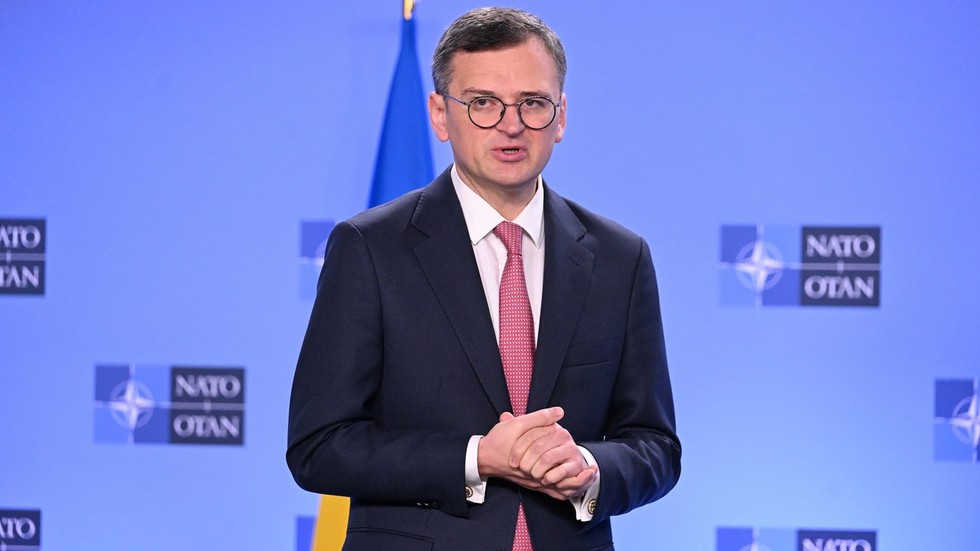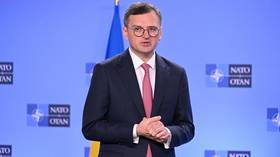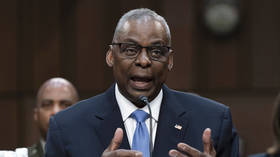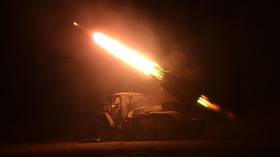
Kiev’s top diplomat has suggested the US and other donors need to give more military aid to stop attacks on Russian refineries

Ukrainian Foreign Minister Dmitry Kuleba © Dursun Aydemir / Anadolu via Getty Images
Kiev would be more receptive to appeals from the US and other Western allies to quit attacking Russian oil infrastructure if those benefactors would boost their military aid, Ukraine’s top diplomat has revealed.
Foreign Minister Dmitry Kuleba offered his suggestion for how the West can earn Ukraine’s cooperation in a local broadcast interview on Sunday. His comments came after US defense chief Lloyd Austin expressed concern earlier this month that Ukrainian drone strikes against Russian refineries and oil storage facilities could trigger a jump in international energy prices.
“You need to think in your own interests,” Kuleba told Rada TV. “If your partners are saying: ‘We are giving you seven Patriot batteries, but we have a request for you, please don’t do this and that’ – then there is something to talk about.”
On the other hand, if “no batteries, no aid package” are being offered in connection with the entreaty – then there is nothing to talk about. “Everyone survives as best they can,” he added.

Weapons shipments from Washington, the biggest sponsor of Kiev’s war effort against Russia, have slowed in recent months amid struggles by US President Joe Biden to secure congressional approval for more Ukraine aid. Republican lawmakers have balked at Biden’s request for more than $60 billion in additional spending after his administration burned through $113 billion in previously approved funding.
Kiev’s donors had previously expressed worries that Ukrainian strikes deep into Russian territory with weapons that NATO members provided could trigger a wider conflict. US Secretary of State Antony Blinken said earlier this month that Washington does not support Ukrainian attacks on Russian soil. Austin later suggested that Kiev could focus on military targets because hitting petroleum infrastructure could roil international markets.

Kuleba said he listened to Austin, but he sees no “cause-and-effect relationship in this matter.” When a refinery in Russia “explodes,” the resulting problems are confined to the Russian energy market, he claimed, and in any case, Ukraine has to prioritize its own interests.
Ukrainian drone attacks have targeted several Russian refineries since early March. Russian Defense Minister Sergey Shoigu suggested that Kiev has resorted to terrorism and long-range strikes against Russia’s civilian population in an attempt to “convince its Western sponsors of its ability to resist the Russian Army.” That’s despite the fact that Kiev has not had any actual success on the battlefield, the minister added.




